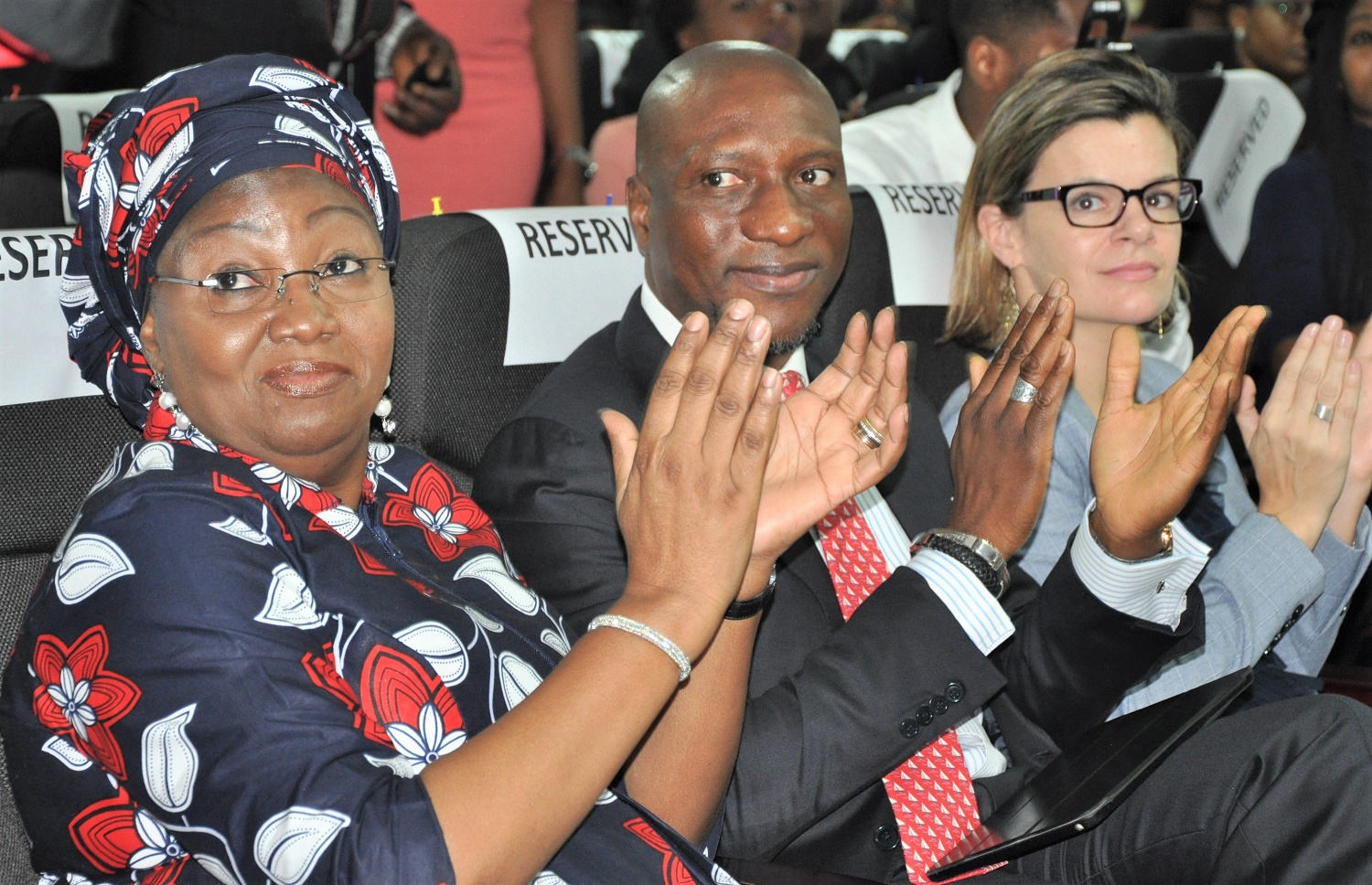Only 15% of Nigerian women own bank accounts- UK Deputy Commissioner, Beaufils

UK Deputy High Commissioner, Laure Beaufils has lamented the low participation of women in economic activities across the globe and especially in Nigeria.
Giving her key note address at the 2018 International Women’s Day (IWD) symposium held on Thursday at the Nigerian Stock Exchange house, Lagos, Beaufils said that in the realm of jobs and the economy, we can do better in Nigeria.
“There are large gender gaps in economic opportunities and outcomes. Women earn less, have fewer assets, bear the burden of unpaid work and care and they are largely contracted in vulnerable and low paying economic activities.
Only 15 per cent of Nigerian women have a bank account or own land or a house compared to 85 per cent of men.
Only 7.2 per cent of women own land they farm on resulting in limited access to finance.
This is unfair. It is missing the opportunity of half of the population to realise their potential, live their dreams and be the best that they can be. But it is also badly affecting the economy. ” She said
Beaufils was worried that “Women make up only 5 per cent of Fortune 500 CEOS. They account for only 24 per cent of senior management positions around the world. In finance, the glass ceiling has barely cracked.
According to Beaufils, there is still a large gap between the representation of men and women in leadership positions in banks and bank supervision agencies worldwide.
“The really bad news is that things don’t seem to be getting better. In November, the World Economic Forum published its annual gender gap report. The report said it would take 217 years for disparities in the pay and employment opportunities of men and women to end. This is significantly longer than the 170 years WEF researchers calculated a year ago.
“In other words, across the world, women are further from equality in pay and employment opportunities this year than they were last year. It is the first time since the WEF began publishing its gender gap report in 2006 that “slow but steady progress” towards parity between men and women has halted.
“The report ranks countries not just on pay. The index looks at economic participation, educational attainment, health and survival and political empowerment. Nigeria is 118 out of 141. There definitely is stuff to celebrate. On life expectancy and sex ratio at birth for example, Nigeria has near parity.
“Where Nigeria falls short is first and foremost in political empowerment. It ranks 136 in 144 in terms of share of women in parliament. We know that there is a woeful lack of women in upper reaches of politics and government. We need to find a way to make politics more attractive for women. An IMF Article 4 report published today dedicates a Selected Issues Paper chapter on Gender Inequality. It estimates that if Nigeria were to raise its gender inclusivity to the level of regional peers, it could add an average of 1.25 percentage points to annual GDP growth. In addition, decreasing gender inequality could also help mitigate income inequality and help boost economic diversification.’
She said, “For our societies to be increasingly equal, we need champions and we partners with whom we can create a critical mass demanding and progressing change. Men and women alike.
We need to work with bold men, who care about doing what’s right for them and for their economy, and who dare to disrupt the established order. Men who will set up maternity leave, set up crèches in their offices, offer maternity and paternity leave, recognise and support the talent of women, and take pride in the success of the women they encourage.
“We must not grow tired because change is not happening fast enough. We must not be afraid to rock the boat. We need more women on every table where decisions are made. We must push the private sector to do a lot better than it currently is. And we all, each and every one of us, in our families, our communities, our work place and in our politics, we all have a role to play in pressing for change. Progress is not inevitable. Sometimes it’s one step forward and two steps back.
“But this is not a battle that we can afford to lose – for ourselves, for our countries, and for the generations to come. We should never rest on our laurels. And we must always believe we all have a role in changing the world even if it’s a only a tiny bit because every tiny bit needed someone who change it.” Beaufils noted.
On his part the Chief Executive Officer of the Nigerian Stock Exchange (NSE), Oscar N Onyema OON, revealed that management of the NSE increased its female representatives by 23 per cent in two years.
While delivering the opening speech at the symposium themed “Press For Progress”, the NSE boss, said the symposium is a call to action to spur women and men into taking bold steps towards closing the gender gap.
Onyema said “In truth, NSE itself must be seen to walk the talk. As you may know, we have a female to male employees’ ratio of 1:2 and we are taking key steps to increase the number of women in our employ, oespecially those in leadership positions.” Onyema said.
Onyema explained that the Exchange’s recent promotion of Ms. Tinuade Awe to Executive Director, Regulations, makes her the number two person at the Exchange.
According to him. “More importantly, the Exchange took steps to address the lack of female representation on our National Council (the highest governing body at the Exchange) by electing three eminent female members at the last AGM”.
“Today, we have 23% female representation as against 0% representation in 2016. ” He said.
Meanwhile, Onyema expressed worry over the World Economic Forum (WEF) 2017 Gender Gap report. The report averred that the dream of achieving parity across gender required more than 200 years to become a reality, in spite of celebrating the achievements of women and discussing steps towards achieving gender parity and social justice for women for more than a century. “What a wait! ” He lamented.
“As one of Africa’s foremost securities exchanges and member of the Sustainable Stock Exchanges Initiative (SSEI), we are deeply committed to leveraging our position to accelerate the achievement of the United Nation’s Sustainable Development Goal (SDG) number 5 which seeks to achieve gender equality and empower all women and girls by 2030.”
In bridging the gender inequality, the NSE in 2016 initiated the NSE GEM (Gender Empowerment Men), a group of male employees at the NSE who act as mentors to young female employees, helping them to navigate the workplace and grow their career.
The NSE also uses its Closing Gong ceremonies to promote the achievements of women where those achievements align with Exchange objectives. The exchange recently imvited Asisat Oshoala, the current CAF African Female Footballer of the year, and the all-female first African Bobsled Team to the Winter Olympics in PyeongChang, to sound the NSE Closing Gong.
Taking further cognizance of the day’s theme, the Exchange further alligned itself with te press for gender parity as the NSE boss took a decison to stay and participate fully throughout the course of the day’s event. Secondly, an all-male panel moderated by a woman was introduced and several men were also encouraged to attend the symposium and participate fully.
Onyema charged all present towards commitment in the strive for progress in gender equality.
He said “As we Press for Progress in our careers, we must also commit to press for progress in all areas of our lives. We cannot give up, not now, not ever. We must push and push until we progress and break the norms that hold us from reaching our targets in gender equality.”







